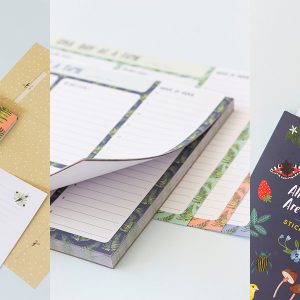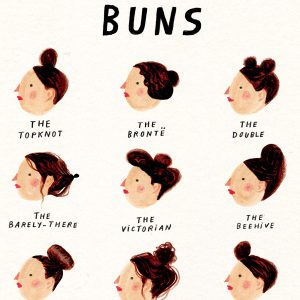We all grumble and complain from time to time, but have you ever wondered what would happen if you just stopped? Journalist Ineke van Lier gives it a try.
It sounds like a good idea: Looking at everything you do have, do know and can do. I made up my own little trick for doing this. I’d ask myself what was making me feel the most fed up. Those are the things I complain about. Next I’d ask myself what I need, and then I would list all the things I needed at that moment and for which I longed. It was wonderful. My complaint-free existence was off to a flying start. I was in bed with the flu, feeling content (done with feeling weak, and grateful that my body was giving out these signals).
Shopping became a lot more fun (I no longer looked upon it as a boring chore, but celebrated the wealth of available foodstuffs instead). Cycling through an icy rain shower, I told myself how lucky I was that I would soon be in my warm home taking a hot bath. I was leading the same life, but looking at it from a new perspective. Quitting my complaining habit gave me more self-confidence. I no longer felt like a victim of myself or of circumstances, because I was the one deciding what to do and how to feel. This gave me a lot more peace of mind.
Overpowering enthusiasm
But then I became a little over-enthusiastic. Like an ex-smoker who can’t stand a whiff of smoke anywhere, I couldn’t tolerate anyone else complaining. I was quick to condemn any complaining on my own part, and just as quick to judge anyone else. ‘I can’t complain anymore, so you can’t either’ was my new mantra. A friend who was feeling down and had a headache could no longer count on my sympathy. “Focus on something positive; take a pill,” was my response. I took her position that life was sometimes hard and surely you were allowed to say so as an illustration of how attached she had become to complaining.
‘Dump your garbage on your own sidewalk,’ I thought, stubbornly. I really believed I was doing the right thing. Seneca, after all, said we should avoid negative people who are always experiencing difficulty, because they are the enemy of our inner peace. But in my case, the ‘negative person’ happened to be a dear friend of mine, someone who was always there for me. When she, in turn, asked how I was doing, an awkward silence fell between us. How could I talk about my day, which also wasn’t going very well, without complaining?
Keep it real
I was struggling to keep to my good intentions, and am now even more painfully aware of this as I descend into my own personal negative spiral in my frustrated attempt to get these garlands up. There is no hope for me. My little trick isn’t working. I am fed up with grumpy complaints and ready to feel happy, but it’s not happening. The panic within me is increasing, and so is my annoyance. I feel pretty down, and am regretting my moratorium on complaining, even if it did really work at first.
“Being honest about what you experience isn’t the same as complaining,” explains Alberts. “You need to be able to express your feelings. People often want to deny or repress undesirable emotions, but it’s not a good idea. It’s like pushing a beach ball under water; it’s going to pop up to the surface again sooner or later.” Now I understand why it is that I can’t get out of complaint-mode: I’m trying to push away my emotions and insisting that I must be happy. And that’s making me feel down.
“It’s a common misperception of positive thinking to believe that everything will be okay if you think only positive thoughts,” Alberts says. “But when you use the positive to avoid the negative, it’s a form of avoidance. It doesn’t work, especially not in the long term. It’s important to admit your feelings and give them space. Not by hitting people or making angry phone calls, but by consciously experiencing your emotions. Just feel them without judging. What’s happening in your body, in your mind and with your feelings? By acknowledging what’s going on in yourself in the moment, you take responsibility for your emotions.”
- The full story ‘The day I quit complaining’ can be found in Issue 16.
Text Ineke van Leir Photography Dabir Bernard/Unsplash.com














